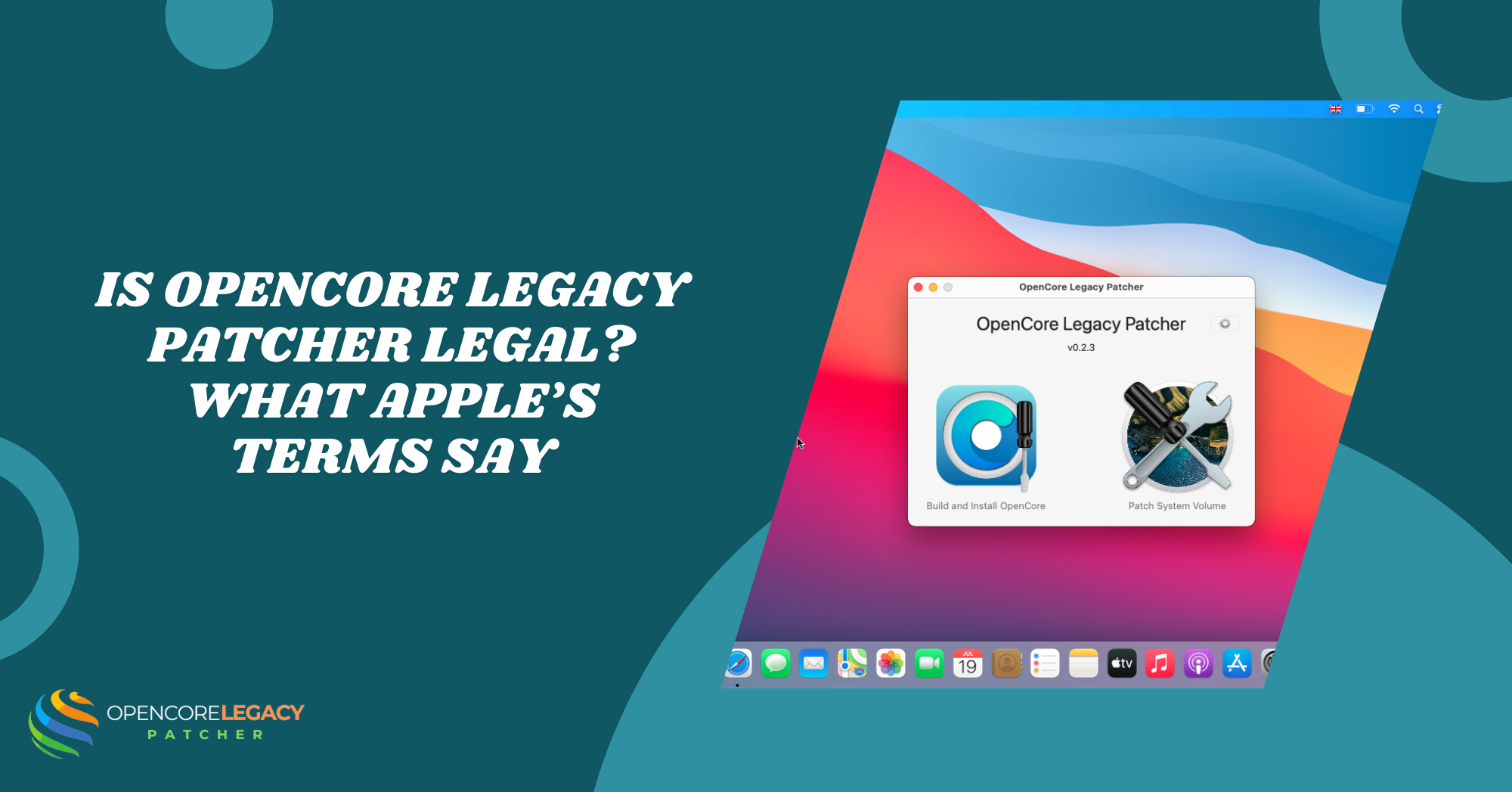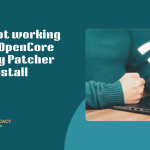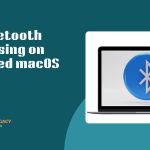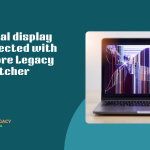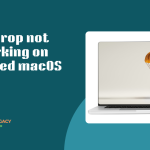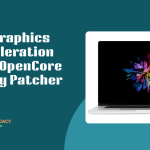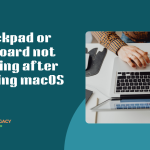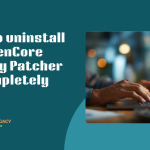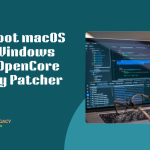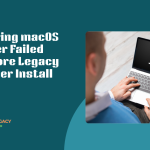Table of Contents
ToggleIntroduction to OpenCore Legacy Patcher and Legal Concerns
Many Mac users wonder Is OpenCore Legacy Patcher Legal. After all, it’s modifying how macOS works on hardware Apple doesn’t officially support.
Since Apple is known for tight control over its software ecosystem, it’s no surprise that people get concerned about the legal side of patching.
The Role of Apple’s Licensing and Terms of Use
Apple’s software comes with a strict End User License Agreement (EULA). This agreement outlines the location and method for installing macOS. Generally, it restricts macOS to Apple-branded hardware.
While OpenCore Legacy Patcher doesn’t install macOS on non-Apple machines, it does bypass certain limitations, which brings us into a gray area of legal interpretation.
What Makes Software Like OpenCore Controversial
Understanding Apple’s EULA (End User License Agreement)
The EULA for macOS clearly states that the operating system is meant to be run only on Apple devices.
While OpenCore Legacy Patcher still follows this by running macOS on real Macs, it alters how the system boots and adds support for models Apple no longer supports. This workaround isn’t directly forbidden, but it’s definitely not endorsed either.
Difference Between Hacking, Modding, and Patching
There’s a big difference between hacking to steal software and modifying your own device. OpenCore doesn’t steal or pirate macOS—it simply enables newer versions on older Macs.
That puts it closer to “modding” than anything malicious. It’s a community tool, not a piracy tool, and that distinction matters in legal discussions.
Is Using OpenCore Legacy Patcher Technically Legal?
Using OCLP exists in what’s called a “legal gray area.” You’re not stealing anything or using macOS on unauthorized hardware, but you are altering how Apple intended the software to function. Apple doesn’t sue users for this, but they also don’t officially support it.
Why It’s Not the Same as Piracy or Cracking
Piracy involves unauthorized copying and distribution. OpenCore Legacy Patcher doesn’t include macOS or distribute anything illegal. It just helps you install what you’ve already legally downloaded—on a Mac you own. So while Apple might frown upon it, it’s not breaking any actual laws in most regions.
Revive Your Mac! Install macOS on Unsupported Devices with Ease
Unlock Modern macOS Features on Legacy Macs—Get Started with OpenCore Legacy Patcher!
What Apple Says About macOS Modifications
Apple’s Official Stance on Unsupported Installs
Apple hasn’t directly commented on OpenCore Legacy Patcher, but their general position is clear: they don’t support installations on machines not officially compatible with the current macOS. That means no official tech support, no guarantee it’ll work, and no liability if it doesn’t.
Risks of Violating Apple’s Terms (If Any)
There are no known cases of Apple pursuing legal action against OCLP users. However, since you’re modifying Apple software, technically, you could be violating the EULA.
For most personal users, the risk is low, but companies or public institutions should proceed carefully and consult legal advice before using such tools.
How OpenCore Legacy Patcher Respects macOS Integrity
No tampering with the macOS kernel
One of the strongest arguments in favor of OCLP is that it doesn’t tamper with the core of macOS. It works alongside the system rather than modifying critical components like the kernel.
This means it doesn’t alter macOS itself in harmful or irreversible ways, which helps preserve system stability and security. It is Safe to use OCLP.
Open-source and Community-Driven Ethics
OpenCore Legacy Patcher is fully open-source and maintained by a transparent community of developers. There’s no hidden agenda—just passionate Mac users helping others keep their older machines running.
This open nature builds trust and shows that the project is about longevity, not exploitation.
Real-World Legal Cases and Community Insight
Has Anyone Been Penalized for Using OCLP?
So far, there haven’t been any publicized legal cases against individuals using OpenCore Legacy Patcher. Apple may not officially support it, but it hasn’t gone after users or developers either.
That’s a strong signal that, while it may be a gray area, it’s not one Apple is actively trying to police for personal users.
What Mac Forums and Experts Say
Tech communities like MacRumors and Reddit’s r/OpenCore have plenty of discussions around legality. The consensus? If you’re using it on your own Mac and not reselling patched systems, you’re in the clear.
Experts generally agree that Apple’s main concern lies with commercial misuse, not everyday enthusiasts.
Personal vs Commercial Use of OCLP
Is It Safer for Personal Projects Only?
Yes, using OCLP on your own Mac for personal reasons is widely accepted. You’re not distributing Apple’s software or violating any laws intentionally.
It’s like breathing new life into something you already own, not breaking into a system you shouldn’t touch.
Why Businesses Should Be Cautious
For businesses, though, the line gets blurrier. Using OCLP in a commercial setting—like refurbishing and reselling Macs with unsupported macOS versions—could put you at risk.
Apple may view that as a direct violation of its licensing terms. Companies should talk to legal professionals before using OCLP at scale.
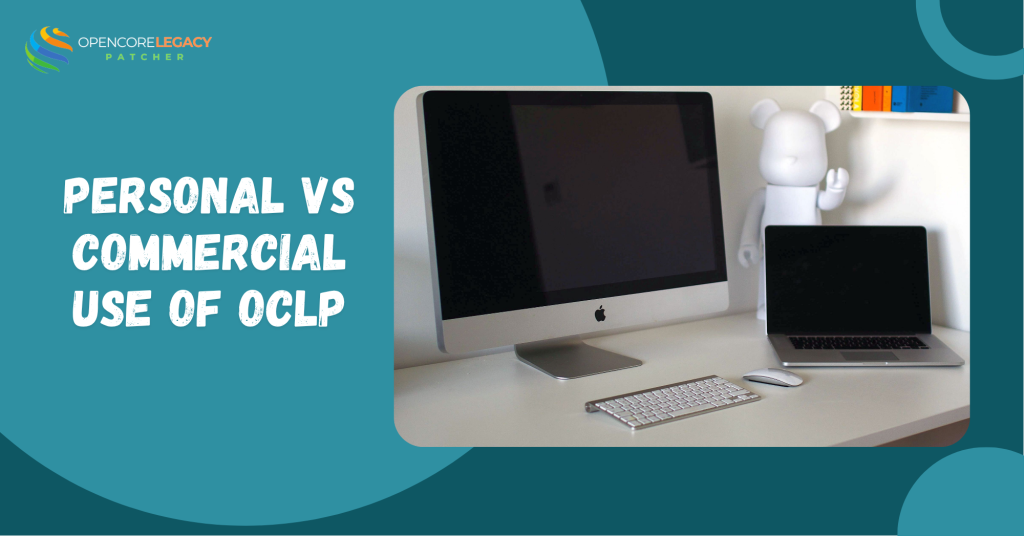
Staying Safe While Using OpenCore
Best Practices to Avoid Legal Trouble
If you’re thinking of using OpenCore Legacy Patcher, the good news is: staying safe is totally doable. Just stick to your own hardware, don’t try selling patched systems or using it in commercial environments without doing your homework.
Keep your installation as close to stock macOS as possible, and avoid bundling unauthorized software or tools. That way, you stay in the safe zone.
Why Backups and Reversibility Matter
Always back up your Mac before diving into patching. If something goes wrong—or if you ever need to remove OpenCore—you’ll want the option to revert quickly.
That kind of reversibility is not only smart technically, but also keeps you on safer legal ground since you’re not permanently altering anything you can’t undo.
Download OpenCore Legacy Patcher Today—Your Mac Deserves a Second Chance!
Patch Smarter, Not Harder—Get the Tools You Need for Modern macOS on Older Hardware
Conclusion: Is OpenCore Legacy Patcher Safe and Legal to Use?
Using OpenCore Legacy Patcher is generally safe for personal use. It’s open-source, well-documented, and built with care for the Mac community. While Apple doesn’t officially endorse it, they haven’t taken action against individual users.
As long as you’re not profiting off it or using it in risky ways, there’s very little to worry about legally. Just enjoy keeping your Mac alive and useful responsibly.
FAQs
Is it illegal to use OpenCore Legacy Patcher on my Mac?
Not technically. It may violate Apple’s EULA, but personal use isn’t enforced or prosecuted.
Can Apple sue someone for using OpenCore Legacy Patcher?
It’s highly unlikely for personal users. Apple has never taken such action to date.
Does OpenCore violate macOS terms and conditions?
It may go against the letter of the EULA, but enforcement for non-commercial use is nearly nonexistent.
Can I get software updates if I use OpenCore?
Yes, but you may need to reapply patches or rebuild OpenCore after major updates.
Is OpenCore open-source and legal to distribute?
Yes. It’s released under an open-source license and free to share from official channels.
Can I use OpenCore in a company or office Mac setup?
That’s risky. Businesses should consult legal advice, as commercial use might breach Apple’s terms.
How do I avoid breaking the law while using patching tools like OCLP?
Stick to personal use, download from trusted sources, and never resell patched systems.
Read More:

